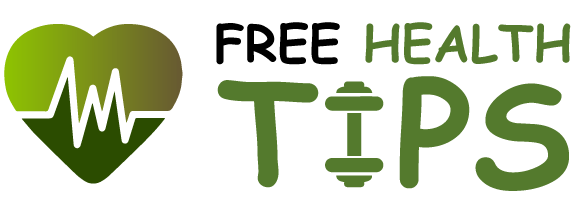Maintaining mental health is just as crucial as taking care of your body. In today’s fast-paced world filled with digital overload, work pressure, and emotional burnout, prioritizing your mental well-being is no longer optional, it’s essential. Whether you’re balancing work, family, or studies, understanding how to nurture your emotional health can dramatically improve your focus, relationships, and overall quality of life.
In this article, we’ll explore science-backed and practical ways to strengthen your mental health, from sleep and nutrition to mindfulness and social connection, so you can feel more balanced, focused, and resilient every day.
1. Get A Restful Night’s Sleep
You might already know the importance of sleep for physical health. But it also holds significant importance in maintaining mental health. Getting enough sleep at night improves your capacity to process, comprehend, and control emotions.
Try not to use computers, televisions, and phones for a few hours before bed for a comfortable rest. Plus, ensure your room is quiet, dark, tidy, and cozy enough. Following a consistent sleeping schedule and waking up will prevent sleep deprivation and fatigue.
Consider using sleep-tracking apps or devices to identify sleep patterns and improve sleep hygiene. A calm bedtime routine, like reading, meditating, or journaling, can help signal your brain that it’s time to rest.
2. Engage In Physical Exercises
Our day-to-day schedules are loaded with consecutive meetings and errands. But along with all the responsibilities, engaging in gentle exercises and physical activities is necessary. Even a 30-minute walk can help your psychological wellness.
Making a decent routine incorporating gentle exercises (like squats, stretches, and running) assists you with memory and reducing stress.
Pair exercise with outdoor activities when possible. Sunlight exposure boosts vitamin D levels, which has been linked to lower rates of depression and anxiety.
3. Avoid Junk Food
Overconsumption of fast food, energy drinks, and highly processed snacks not only makes you obese but can also deteriorate your mental and emotional well-being. Extra sugary, cholesterol-rich diets trigger symptoms of depression and anxiety. So, for a quick snack, try walnuts, almonds, pistachios, or cashews instead.
Try adding foods rich in omega-3 fatty acids (like salmon, chia seeds, and flaxseeds). Research shows omega-3s support brain function, mood regulation, and focus.
4. Connect With Nature Again
According to the research published in Proceedings of the National Academy of Science, a 90-minute walk in any natural landscape compared to a highly urbanized area showed decreased rumination levels. In other words, there is a decline in factors linked to depression.
To improve your mental health and mood, go on a trek, walk barefoot on the grass, pay attention to the birds chirping, and be more conscious of your senses.
If you live in an urban area, try creating small “green zones” at home, like indoor plants or balcony gardens. Even short exposure to greenery can lower stress hormones.
5. Slim Your Screen Time
Many of us don’t realize how long we’ve been scrolling through reels or feeds. Schedule deliberate screen-free hours daily, especially before bed.
Your bedroom should be tech-free. To satisfy the urge for stimulation, try creative hobbies like painting, reading, or playing sports. It will promote restful sleep as well.
Use built-in screen time tracking tools on your phone. Setting digital limits can help reduce doomscrolling and mental fatigue.
6. Regulate Your Feelings
Maintaining a stable emotional state requires emotional control abilities. Recognize the triggers that cause anger or frustration so you can manage them better.
To regulate your emotions:
- Accept your feelings and ask yourself what safe options or solutions exist.
- Practice deep breathing exercises.
- Seek support from peers and family.
Try journaling your emotions daily. Writing helps declutter your thoughts, promotes self-awareness, and helps you detect emotional patterns before they escalate.
7. Take Pauses Throughout The Day
If you work long hours, take breaks away from your screen, perhaps lunch outside or a short walk. Regular pauses help recharge your mind and improve focus.
Try the “Pomodoro Technique”, work for 25 minutes, then take a 5-minute break. This structured method helps boost productivity while reducing mental strain.
8. Live In The Present Moment
According to Harvard research, we spend 47% of our waking hours distracted from the present. Mindfulness means focusing on the “now” instead of the past or future.
Avoid multitasking and finish one task at a time. Stop worrying about what’s next. Practicing gratitude helps you appreciate your current blessings.
Start with a 5-minute daily mindfulness practice, like breathing awareness or guided meditation, to train your mind to stay present.
9. Try Meditation
Meditation helps you remain calm and focused even in stressful situations. It’s a proven way to reduce anxiety and control negative thoughts.
If you’re new to meditation, try beginner-friendly apps like Headspace or Calm. Consistency, even 10 minutes a day, matters more than perfection.
10. Cut Yourself Some Slack
Accept that you cannot be productive all the time. Be gentle with yourself during tough days. Don’t internalize criticism, set boundaries and prioritize rest.
Go for a walk, meet friends, or take a mental health day to recharge.
Practice “self-compassion breaks”, pause, breathe, and remind yourself that mistakes are part of being human. It instantly relieves self-pressure.
Bonus Tip: Seek Professional Help When Needed
Sometimes self-care isn’t enough, and that’s okay. If you’re facing prolonged sadness, anxiety, or emotional exhaustion, consider reaching out to a licensed therapist or counselor. Early intervention prevents symptoms from worsening and helps you regain balance faster.
Conclusion
Even after following all these tips, you may still face tough mental health days, and that’s perfectly normal. What matters most is staying kind to yourself and reaching out when you need support.
Remember, small daily actions, like sleep, gratitude, exercise, and connection, can create lasting changes in how you feel and live.
Frequently Asked Questions
When is Men’s Mental Health Month?
November.
When is Women’s Mental Health Month?
May.
When should someone talk to a mental health professional about unwelcome thoughts or emotions?
When thoughts or emotions persistently disrupt daily life, relationships, or well-being.
What is IOP in mental health?
Intensive Outpatient Program: structured therapy sessions several times a week, allowing patients to live at home.
What is PHP in mental health?
Partial Hospitalization Program: intensive, daily treatment, typically 5-7 days a week, without overnight stays.
How much do mental health counselors make?
Varies by location and experience; in the U.S., averages $45,000-$70,000 annually.
What color is mental health awareness?
Green.
What is the difference between mental and emotional health?
Mental health includes cognitive functions like thinking and reasoning; emotional health focuses on managing and expressing feelings.
How does school affect mental health?
School can cause stress, anxiety, or depression due to academic pressure, social challenges, or bullying, but supportive environments can boost well-being.
What does the butterfly tattoo mean in mental health?
Often symbolizes transformation, hope, and recovery, particularly in the context of mental health struggles or self-harm awareness.
Is June Mental Health Month?
No, Mental Health Awareness Month is May in the U.S.
Is Kumon bad for mental health?
Kumon’s rigorous academic program can stress some children, but outcomes depend on individual temperament and parental support.


